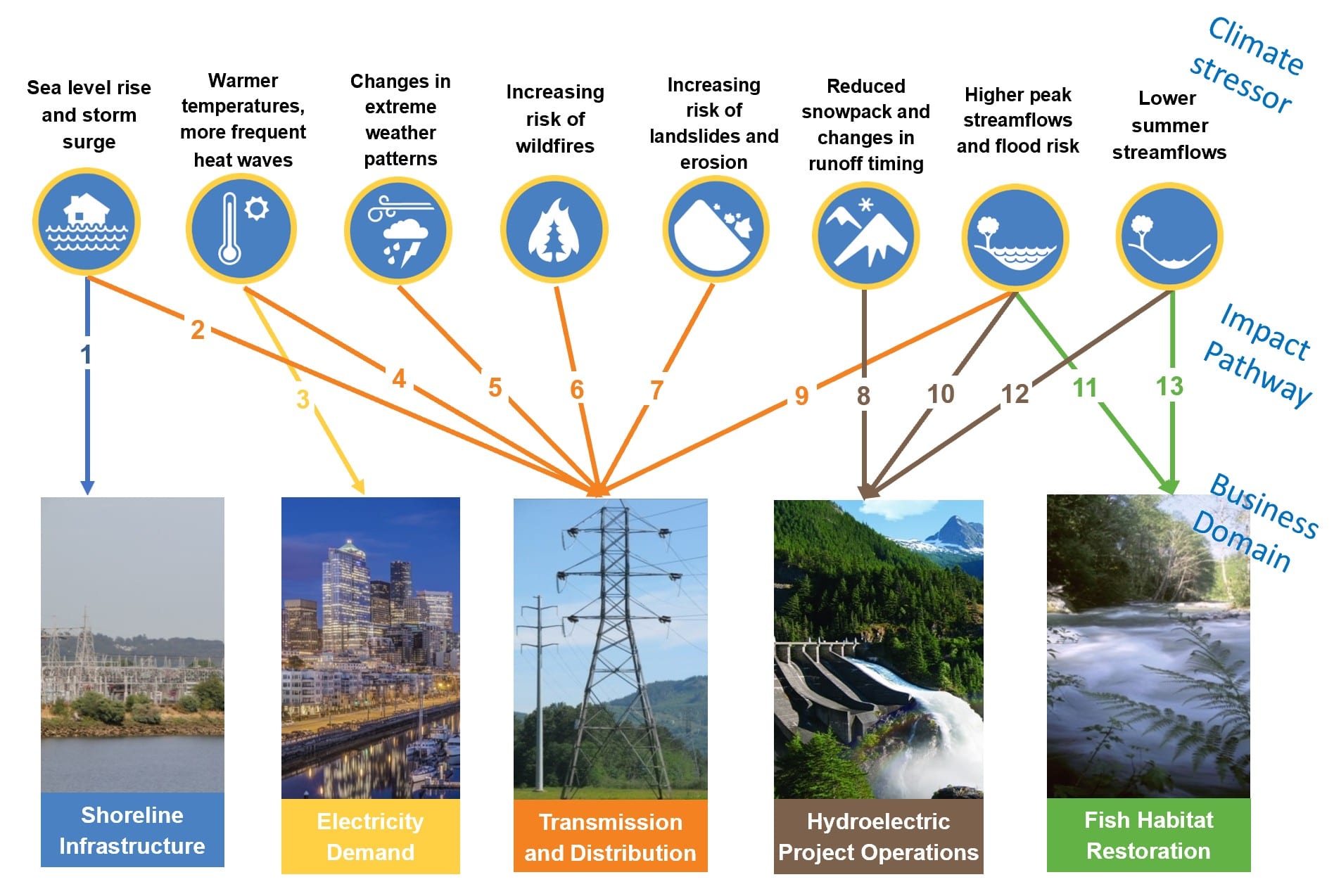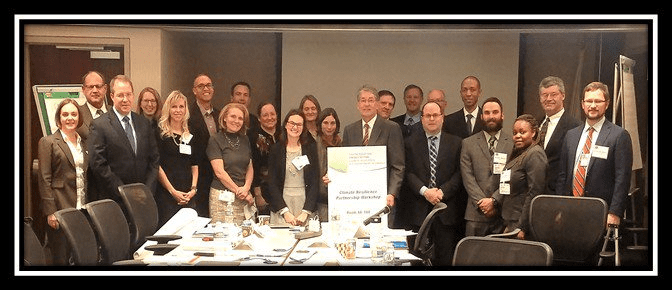
This is a guest post authored by Climate Change Research and Adaptation Advisor Ronda Strauch
In a time where “new normal” has become a common phrase and experience, we have demonstrated our capacity to adapt and revealed our resilience. We have both implemented and made new plans to adjust to the global threat of COVID-19. This week we celebrate the 50th anniversary of Earth Day and the theme of this year addresses another global threat — Climate Action. As with the case of pandemics, City Light has a plan for this challenge too: Seattle City Light Climate Change Vulnerability Assessment and Adaptation Plan (Climate Plan), created in 2015.

Our climate plan is exceptional in several ways:
- It was the first all-inclusive climate change impact assessment and preparation plan by an electric utility in the nation.
- It is comprehensive in that it assesses the vulnerability of multiple City Light business domains or functions, including energy demand, hydroelectric operations, and environmental protection and restoration, to a host of climate stressors.
- It is strategic as it provides a suite of adaptation actions designed to reduce vulnerability and increase resilience to changing climate and associated consequences like wildfire.
The comprehensive and strategic nature of the plan helped City Light receive an inaugural national climate-adaptation leadership award from a consortium of federal agencies in 2016. Since its development, other utilities and agencies have modeled City Light’s climate plan to further their own climate resilience.
The challenge of adapting to a changing climate necessitates collaboration. City Light is one of the founding members of the U.S. Department of Energy’s Partnership for Energy Sector Climate Resilience. This partnership represents 25% of the nation’s customers and works together to accelerate climate-resilient energy technologies, practices and policies vital to our country’s electrical grid. City Light is also active in the Center for Energy Advancement through Technological Innovation (CEATI), which is a user-driven organization committed to providing technology solutions to electrical utilities. We participate in Climate Change Opportunities, Risk, and Adaptation (CCORA) working group of CEATI, developing adaptation options to address climate change impacts to hydropower operations, which is over 90% of our power supply. We also collaborate with numerous federal, state, tribal, university and private partners to research climate change impacts and develop adaptation actions.

City Light is a community utility, and we have a plan to continue serving our customers as the climate changes through strategic collaborations, sound investments, and rigorous science. Like Governor Jay Inslee said recently in the efforts to address coronavirus: “Let science guide decisions.”
We are using climate science to make City Light more climate resilient now and into the future. Earth Day is one of the greatest civic events on the planet. City Light is committed to sustaining and enhancing our community’s quality of life through innovation and environmental responsibility as we serve our customers.

Ronda Strauch joined Seattle City Light in July 2018 as a Climate Change Research and Adaptation Advisor in the Science Policy Unit of the Environment, Land and Licensing Business Unit. She recently obtained her PhD from the University of Washington in the Department of Civil and Environmental Engineering, specializing in landslide and hydrologic modeling. When time allows, Ronda enjoys gardening, hiking, kayaking, and mountain climbing.